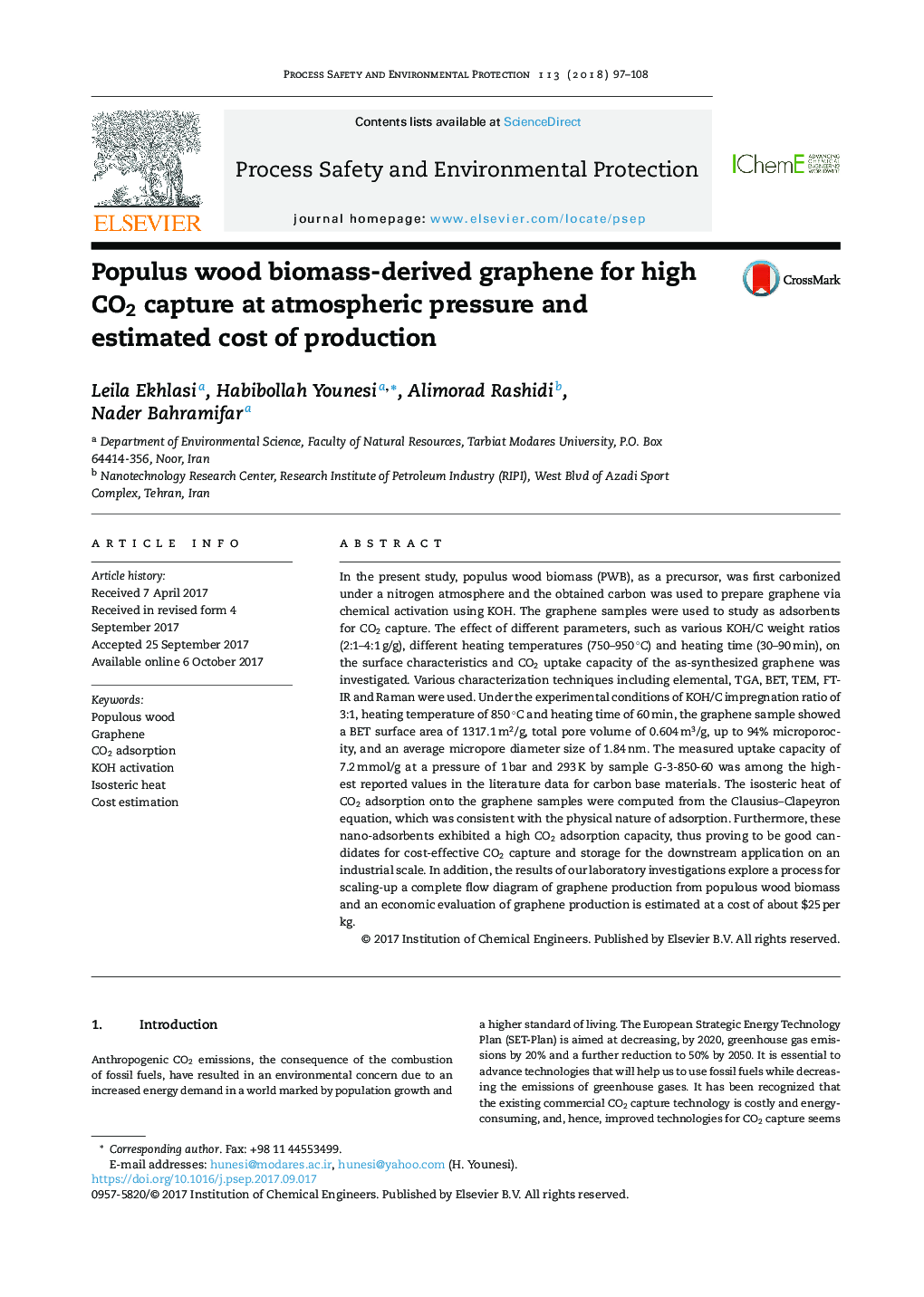| Article ID | Journal | Published Year | Pages | File Type |
|---|---|---|---|---|
| 4980626 | Process Safety and Environmental Protection | 2018 | 12 Pages |
â¢Highly porous graphene was prepared using a populus wood biomass as the precursor.â¢At 1 bar, G-850 shows the best CO2 capture and can adsorb CO2 of 7.2 mmol gâ1.â¢Graphene shows a high recyclability without loss of the CO2 capture capacities.â¢Isosteric heats of adsorption are computed to be in physisorption range.â¢We report Kilogram-scale synthesis of graphene from PWB via a cost-effective method.
In the present study, populus wood biomass (PWB), as a precursor, was first carbonized under a nitrogen atmosphere and the obtained carbon was used to prepare graphene via chemical activation using KOH. The graphene samples were used to study as adsorbents for CO2 capture. The effect of different parameters, such as various KOH/C weight ratios (2:1-4:1 g/g), different heating temperatures (750-950 °C) and heating time (30-90 min), on the surface characteristics and CO2 uptake capacity of the as-synthesized graphene was investigated. Various characterization techniques including elemental, TGA, BET, TEM, FT-IR and Raman were used. Under the experimental conditions of KOH/C impregnation ratio of 3:1, heating temperature of 850 °C and heating time of 60 min, the graphene sample showed a BET surface area of 1317.1 m2/g, total pore volume of 0.604 m3/g, up to 94% microporocity, and an average micropore diameter size of 1.84 nm. The measured uptake capacity of 7.2 mmol/g at a pressure of 1 bar and 293 K by sample G-3-850-60 was among the highest reported values in the literature data for carbon base materials. The isosteric heat of CO2 adsorption onto the graphene samples were computed from the Clausius-Clapeyron equation, which was consistent with the physical nature of adsorption. Furthermore, these nano-adsorbents exhibited a high CO2 adsorption capacity, thus proving to be good candidates for cost-effective CO2 capture and storage for the downstream application on an industrial scale. In addition, the results of our laboratory investigations explore a process for scaling-up a complete flow diagram of graphene production from populous wood biomass and an economic evaluation of graphene production is estimated at a cost of about $25 per kg.
Graphical abstractDownload high-res image (192KB)Download full-size image
